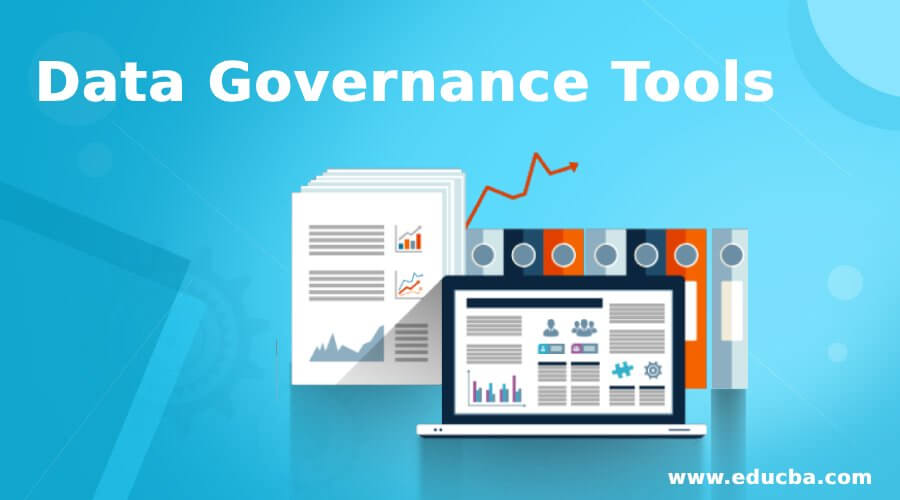
What is Data Governance Tools?
Data Governance is a set of processes, policies, standards, roles that determine that information is used effectively and efficiently to help an organization to achieve its goals such as managing data availability, enhance usability, security, and integrity. It sets out the processes and responsibilities which guarantee the effectiveness and security of the data used across a business or organization. Data governance determines who, using what tools, can take what action, what data, in what circumstances.
Data governance performs functions in an organization such as the development of processes to solve issues related to data, Data architecture, data modeling and designing, data storage and operations, metadata, data warehousing business intelligence, i.e. help companies to make decisions with high-quality data. As data and its applications are important for organizations, so are the data governance tools to ensure the integrity of data.
Top 5 Popular Data Governance Softwares
In this article, we will see a list of the various popular Data Governance Softwares.
1. Collibra
Collibra is a widely used data governance tool that is famous for automating data operations. It delivers the only end-to-end Data Intelligence platform to enhance digital business transformation. Collibra’s semantic search capability is a great feature that gives it an edge over conventional market-based data governance tools. Tasks relating to governance and data management can be automated to make workflows more efficient and reliable. With Collibra’s pre-built integration models, teams can easily link seamlessly to data lakes and metadata. It is supported by platforms Windows, Web, iOS, Cloud, Mac, and SaaS.
Features of Collibra
- It provides Automation of Data Governance & Management.
- It collaborates with stakeholders
- It has a Data Help Desk to resolve data queries.
- Security and auditing.
- It Creates reports and shares data governance information
- It helps Businesses with rule validation.
- It helps in Metadata management
2. Talend
Talend is an open-source Data Governance tool mainly known as a trusted data unified cloud platform. It offers many functions such as metadata management, improving data lineage, integration of data into the cloud. It is supported by platforms such as Windows, Web, Cloud, Mac, and SaaS.
Features of Talend
- Talend maintains privacy data and governance without compromising customer experience.
- It searches and resolves problems of data quality upfront.
- It provides the help of data experts for trustworthy and meaningful data.
- It Ensures compliance and complete transparency of data.
- Talend has a unified cloud platform that helps in Delivering self-service data access.
3. IBM
IBM’s data governance solutions are useful for any organization. It has the ability to adjust to various data processing approaches with numerous data entry points from a variety of cross-functional teams. The data cataloging system is one of the best features of IBM. These data catalogs are powered by machine learning algorithms, resulting in quicker metadata processing and data asset production. IBM is more popular for its security infrastructure, which ensures the protection of the users’ privacy and data. It is supported by platforms like Windows, Web, SaaS, and Cloud,.
Features of IBM
- It provides Data Cataloging, which automatically crawls various profiles, links, organizes, and enhances the metadata.
- It gathers information as well as metadata for Big Data Projects.
- It helps in Empowering decision making.
- It allows Higher data interoperability.
- IBM helps to Improve data quality.
- It provides Superior data lineage.
4. Informatica
Informatica is a data governance software that helps in the quick fixing of compliance. It can be implemented in the cloud as well as on-premise. It provides data lineage visualization, history, along with master data dashboards for monitoring of data quality. It allows dynamic masking for the security of data. It Reviews records and checks rule validation to Help data meet organizational standards, which ensure higher data quality.
Features of Informatica
- It detects and secures sensitive data of users.
- Management of GDPR data risks.
- It helps to update data.
- It allows Role-based access to the data; hence the higher Security and auditing are achieved.
- It provides Visualization as well as reporting of data and metadata.
- It can be integrated with other applications.
5. Cloudera Enterprise Data Hub
Cloudera Enterprise offers a data governance facility through the Cloudera Navigator. It has a search-based interface. Cloudera Navigator is the solution for Apache Hadoop, which provides data governance. It performs functions like data discovery, audit, metadata management, continuous optimization, lineage, and policy enforcement.
Features of Cloudera Enterprise
- It searches and Analyzes the Data and generates reports.
- It supports Deployment & Sharing of Analytics.
- It allows Data remediation.
Conclusion
In this article, we have seen what is data governance and tools which suit framework and data operations. You can choose a tool that is best for your data governance framework based on the objectives and goals of your data governance strategy. we hope you will find this article helpful.
Recommended Articles
This is a guide to Data Governance Tools. Here we also discuss the introduction and top 5 popular data governance softwares along with features. You may also have a look at the following articles to learn more –

